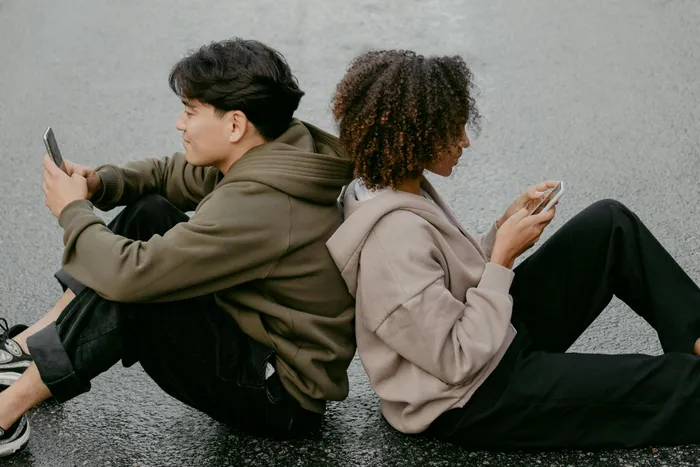Shrekking: The controversial new dating trend that challenges attraction norms

Establishing clarity about your relationship goals can streamline the matchmaking process.
Image: Pexels/Cottonbro
If you’ve ever felt like dating in 2025 is more complicated than it should be, you’re not imagining things.
Between apps, shifting cultural norms and viral dating trends, navigating love today is almost a full-time job.
“Finding and keeping love today is harder than at any point in human history,” says Paul C. Brunson, author of "Find Love" and global relationship insights expert for Tinder.
In the past, people mostly sought a partner for survival or stability: someone to raise children with or share household responsibilities.
Fast-forward to now, and our expectations are sky-high.
According to Eli Finkel's book, "The All-or-Nothing Marriage", many people expect their partners to be their best friend, co-parent, business partner, intellectual equal, emotional anchor and lover.
That’s a lot for one person to carry.
With so many types of relationships considered acceptable today - monogamy, polyamory, long-distance, living apart together and more - finding a partner whose values and lifestyle truly align with your own can be challenging.
Just when you thought dating trends couldn’t get any more confusing, comes along Gen Z's newest dating trend, “shrekking".
This trend is inspired by the animated film Shrek.
It encourages people to date someone they don’t find physically attractive, hoping that they’ll be treated better in return. In other words, date “an ogre” for the “princess treatment".
Cute name, bad idea, say experts.
Dating coaches caution that assuming kindness based on looks is a gamble; attraction and treatment don’t reliably correlate, and lowering standards for the wrong reasons can lead to hurt.
The trend speaks to a deeper worry: people wonder whether being picky makes them miss out, or whether compromising means settling.
According to a Times of India article, the author of "Breakup Bootcamp" observes, 'In this scenario, you're dating an ogre without the princess treatment. Attraction doesn’t work that way - you can’t assume kindness just because someone isn’t your type."
And when the so-called 'ogre' ends up treating you poorly anyway? That’s called 'getting shrekked,'
At first glance, shrekking might look harmless, maybe even quirky, but psychologists caution against buying into it.
It feeds stereotypes
Judging how someone will treat you based on their appearance is both misleading and unfair. As relationship expert Emma Hathorn of Seeking.com told USA Today, "When two people are genuinely aligned in their goals and values, they can discover an attraction that surprises them, transcending superficial factors like physical type or societal expectations."
It can backfire emotionally
Many people who’ve tried dating outside their comfort zone for the wrong reasons ended up more hurt, not less. The assumption that “dating down” guarantees better treatment often leaves people feeling betrayed and resentful.
It discourages healthy openness
Ironically, shrekking can scare people away from dating outside their “type", even though genuine attraction often develops through shared values, laughter and emotional intimacy, not just looks.
Like most dating trends, shrekking has taken off because of TikTok and memes.
Some users joke about being “someone’s Fiona,” while others admit the term has knocked their confidence.
One X user confessed, “I was JUST getting my confidence back to start dating again. Now I’m gonna be paranoid that the person I’m dating thinks I’m ugly.”
This is where the darker side of dating culture creeps in: while social media makes us laugh, it also reinforces insecurities, turning dating into performance rather than connection.
What does healthier dating look like?
Experts agree that meaningful relationships still come down to timeless values: honesty, respect, shared goals and emotional safety.
- Know what you want: Brunson’s research shows that people struggle most when they’re unclear about the type of relationship they’re seeking. Are you looking for a long-term partnership or casual dating? Clarifying your goal helps you identify mismatches more quickly.
- Prioritise values over vibes: Looks fade and chemistry fluctuates, but shared values like how you handle conflict, money, or family tend to predict long-term happiness.
- Practice self-awareness: Finkel’s “self-evolution” theory reminds us that we can’t expect a partner to meet every need. Building community, friendships and hobbies outside your relationship makes it healthier and less pressured.
- Be wary of trends: Whether it’s ghosting, breadcrumbing or now shrekking, fads come and go. What remains are the basics of empathy, communication and mutual respect.